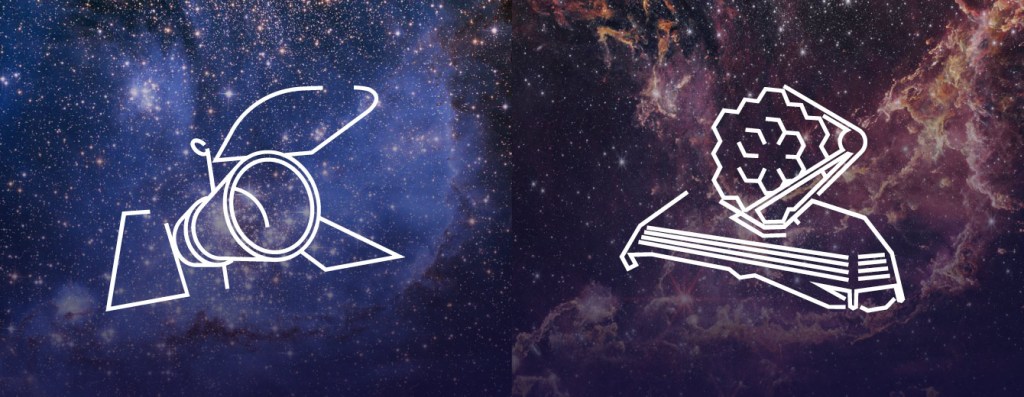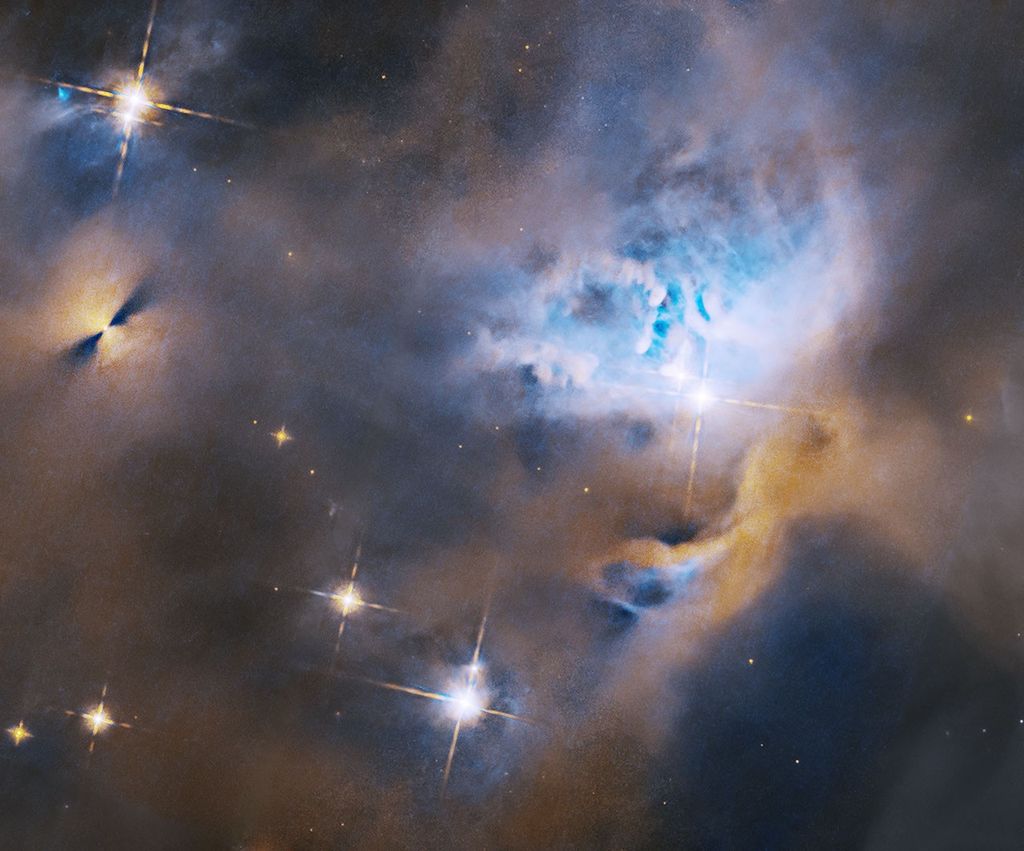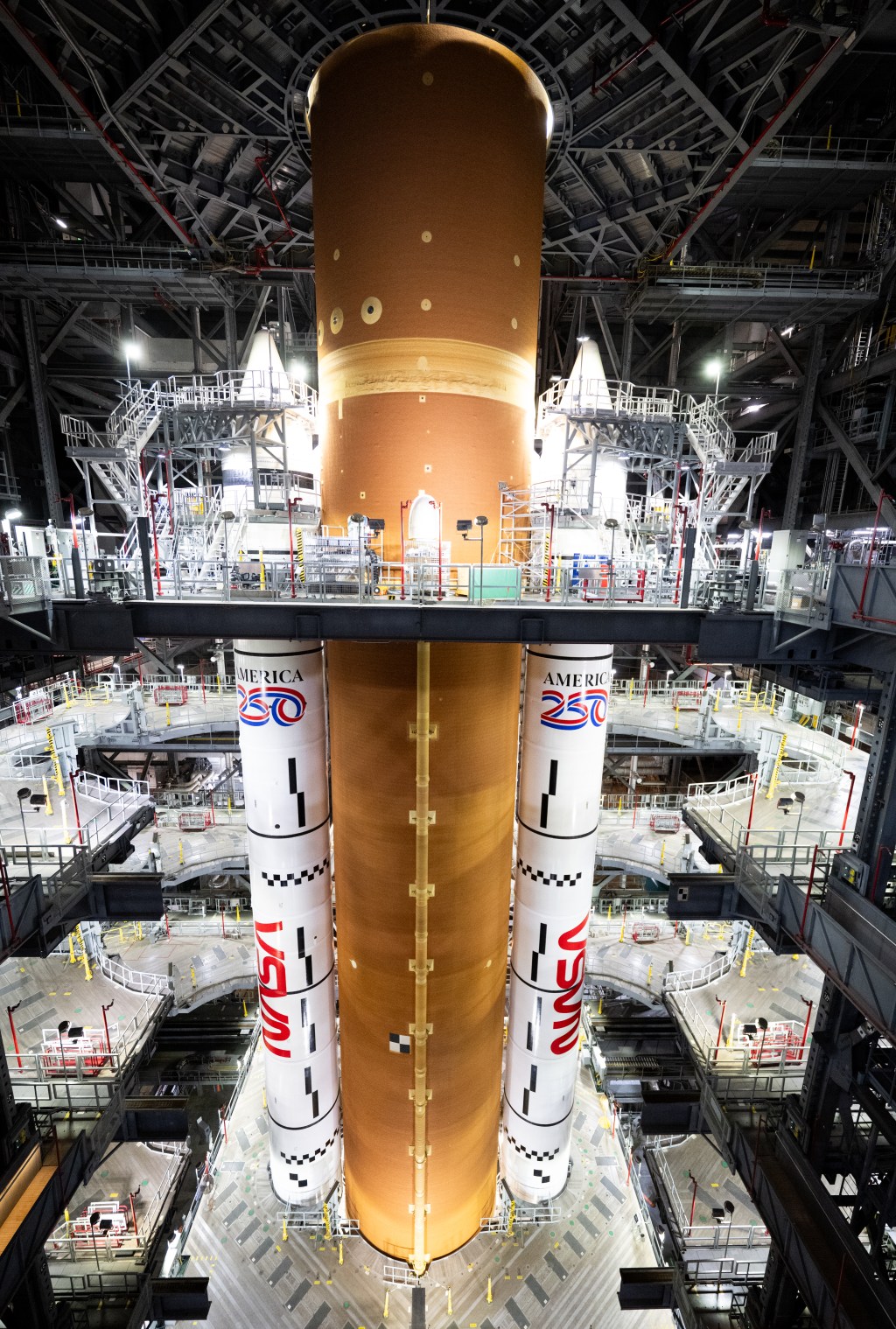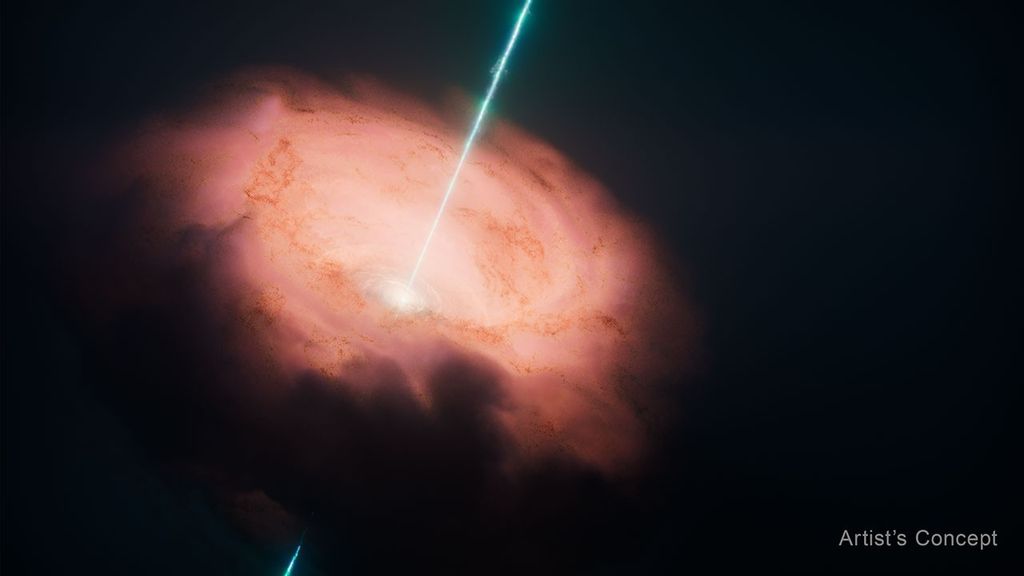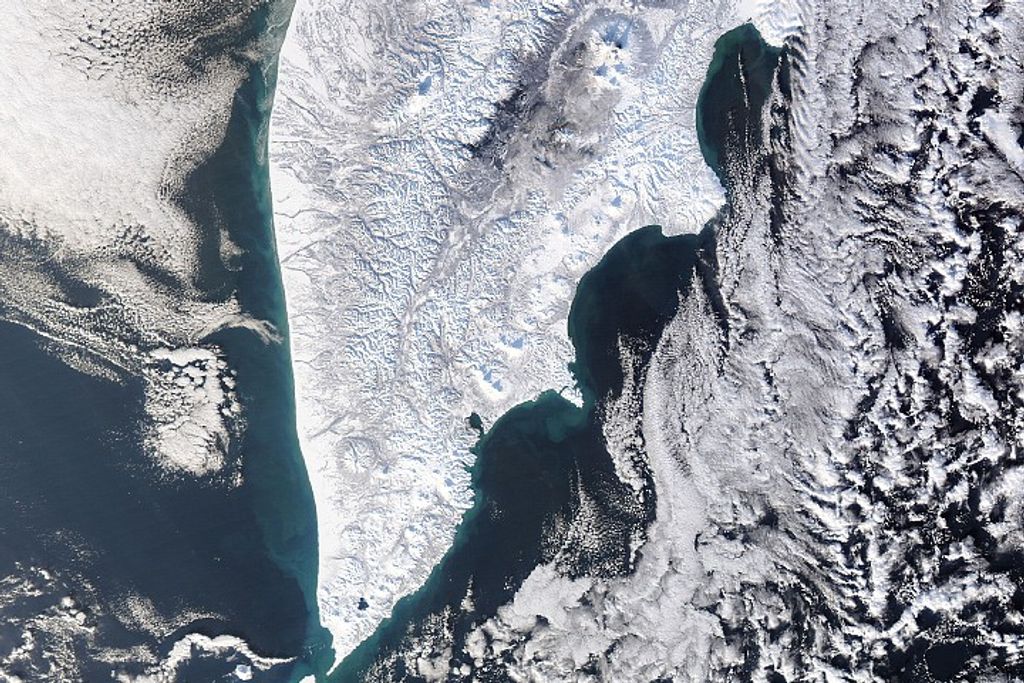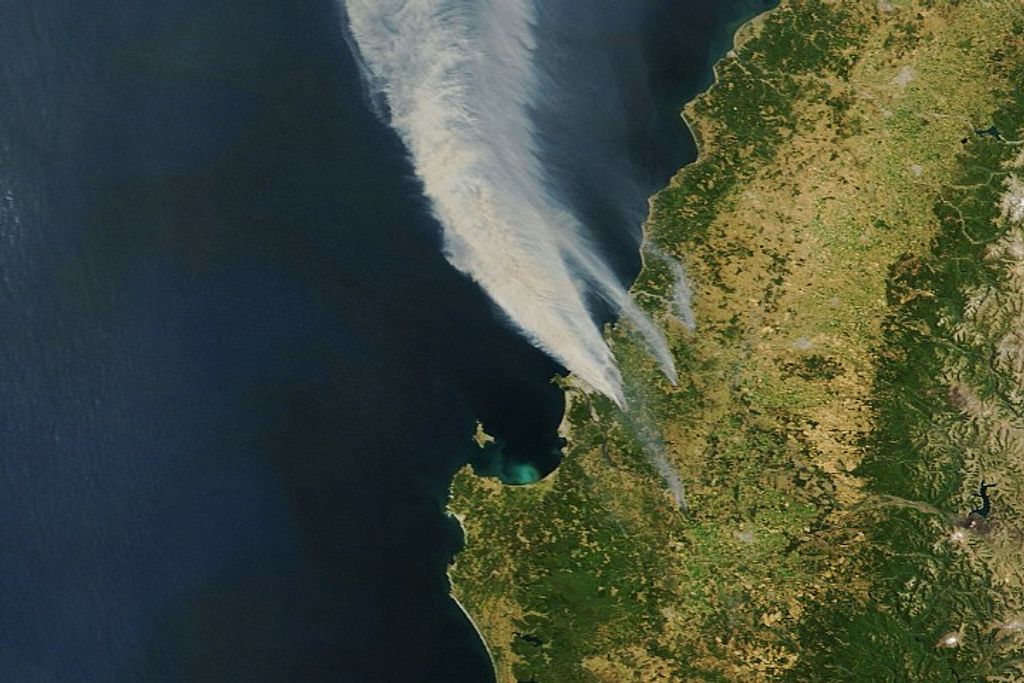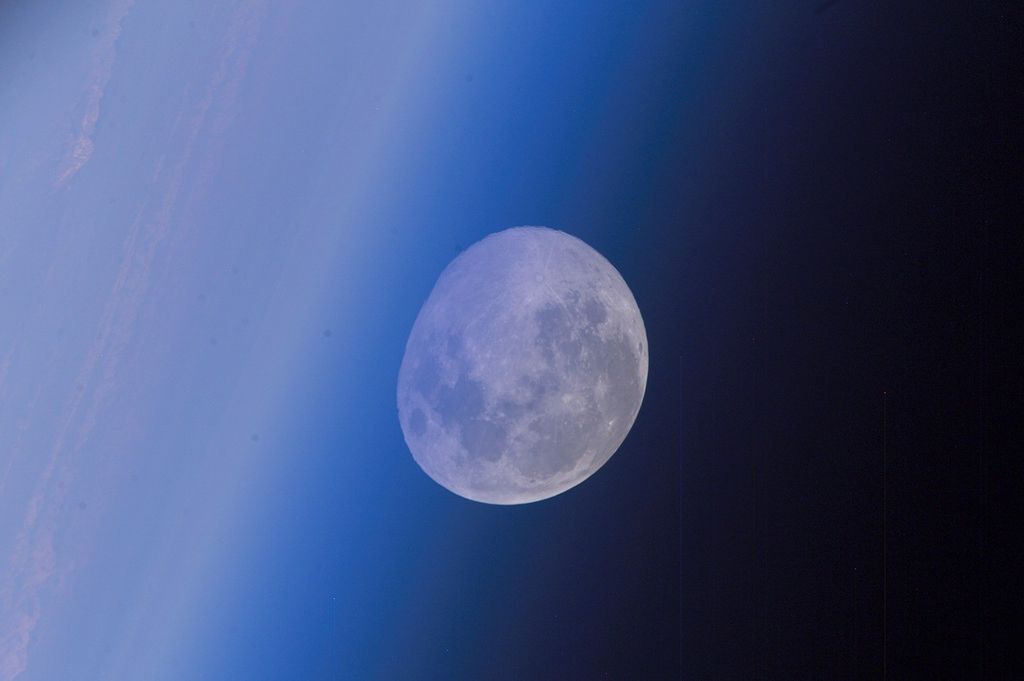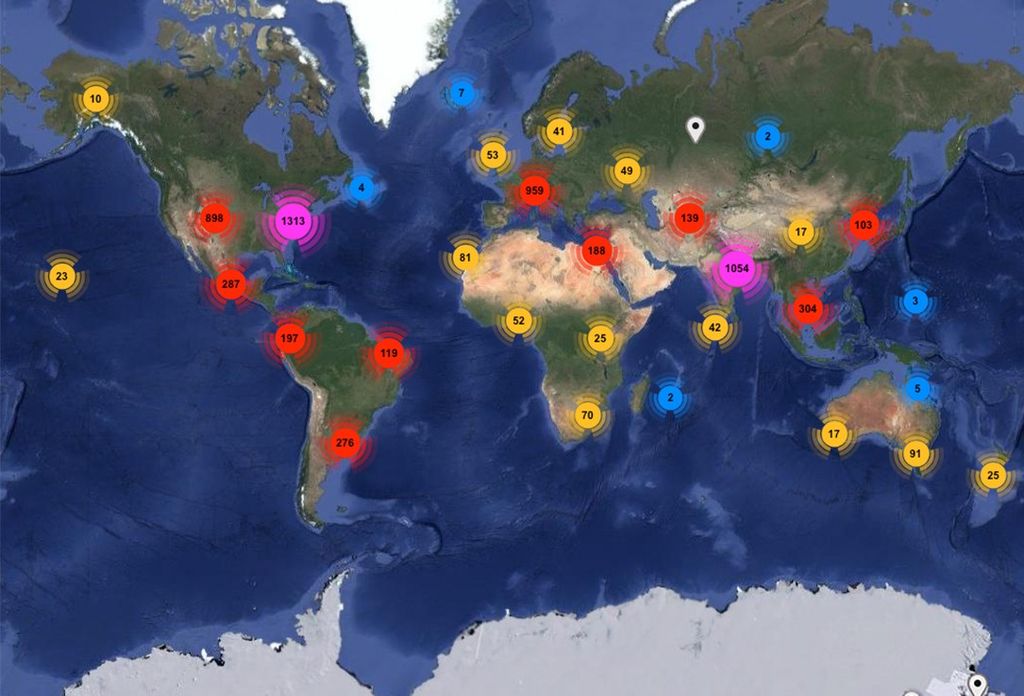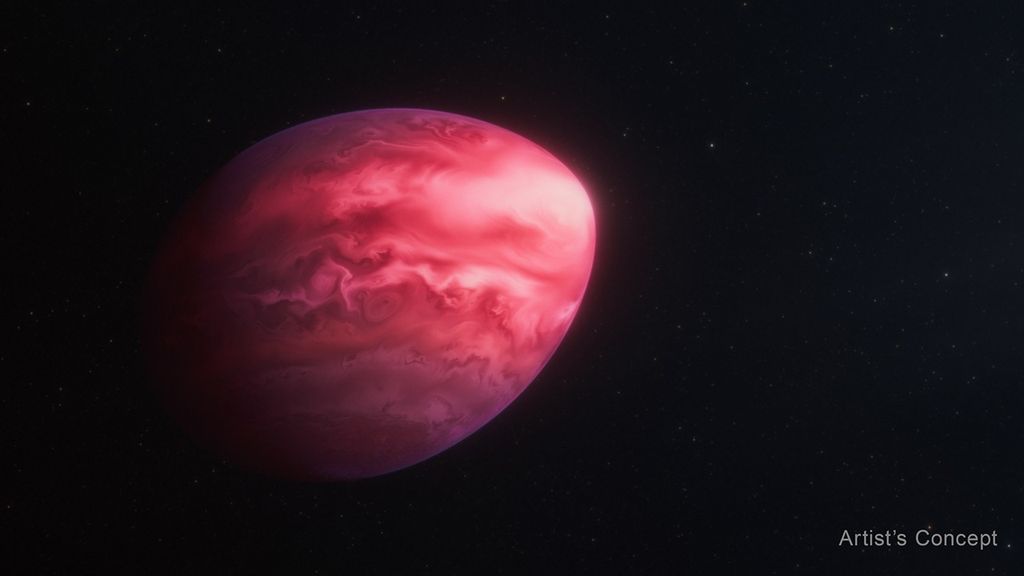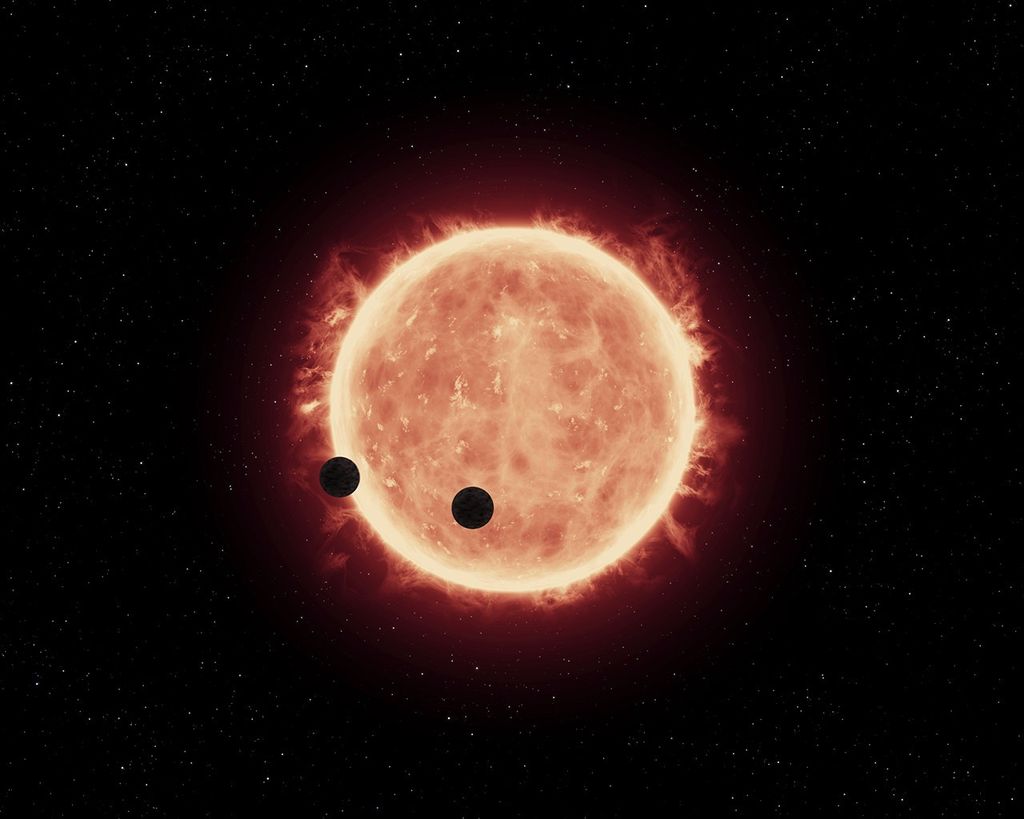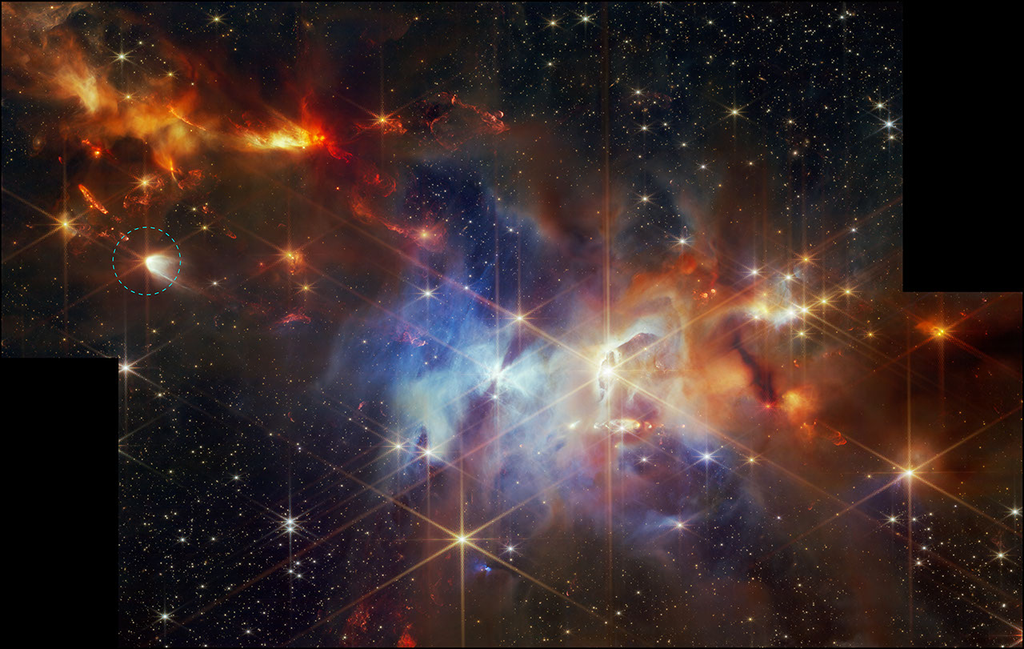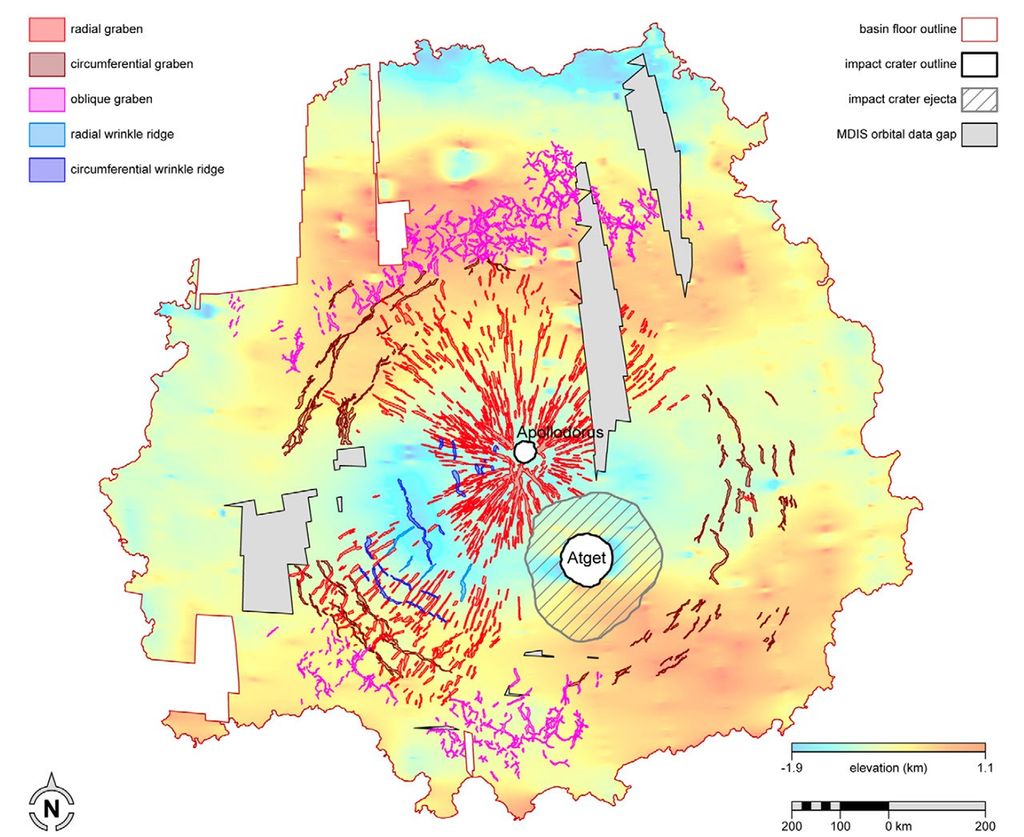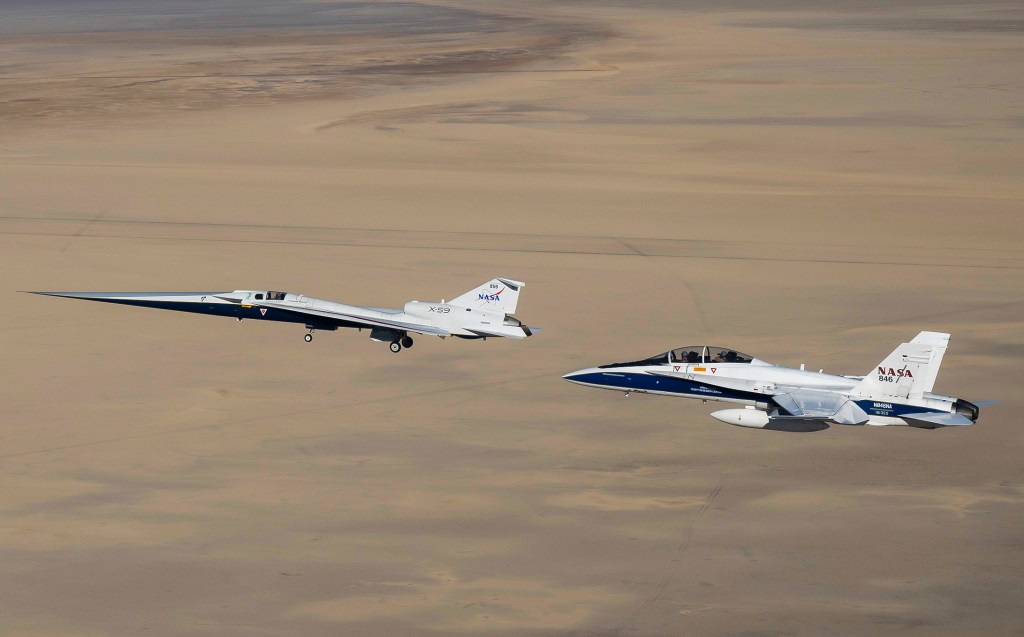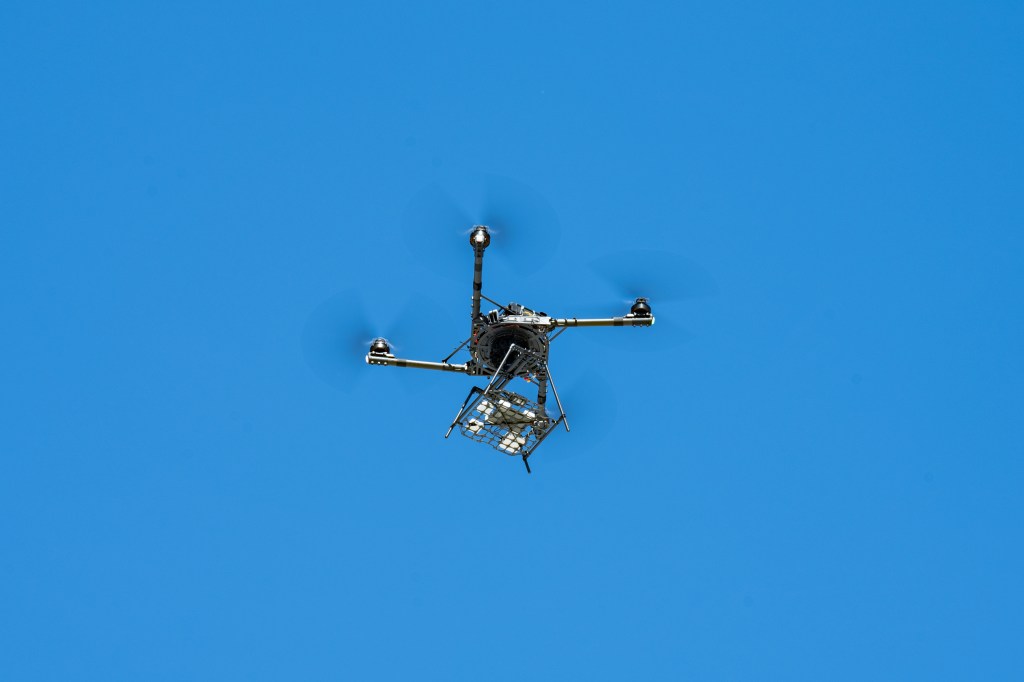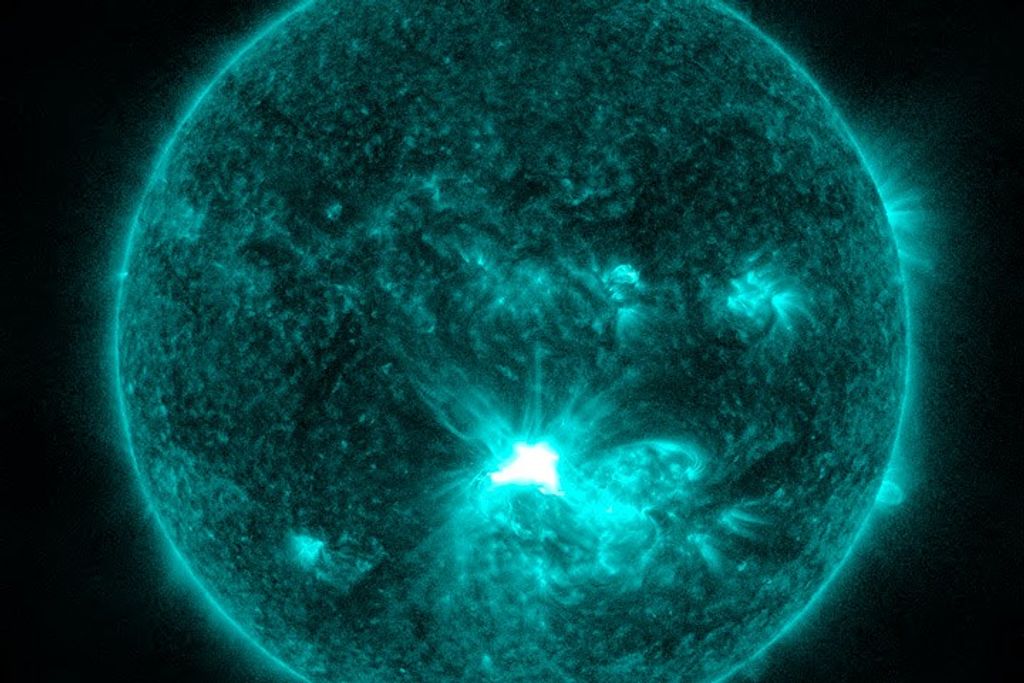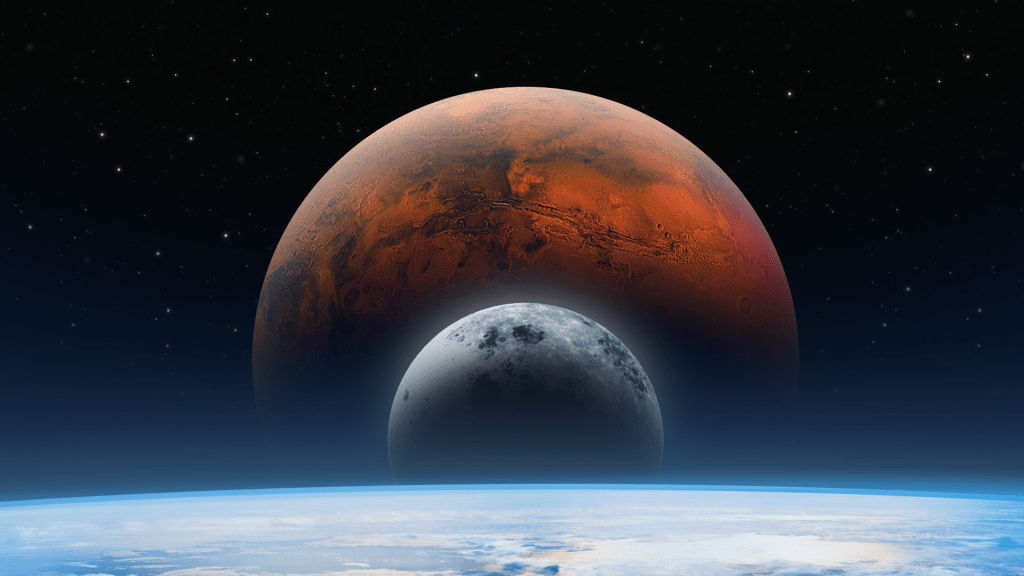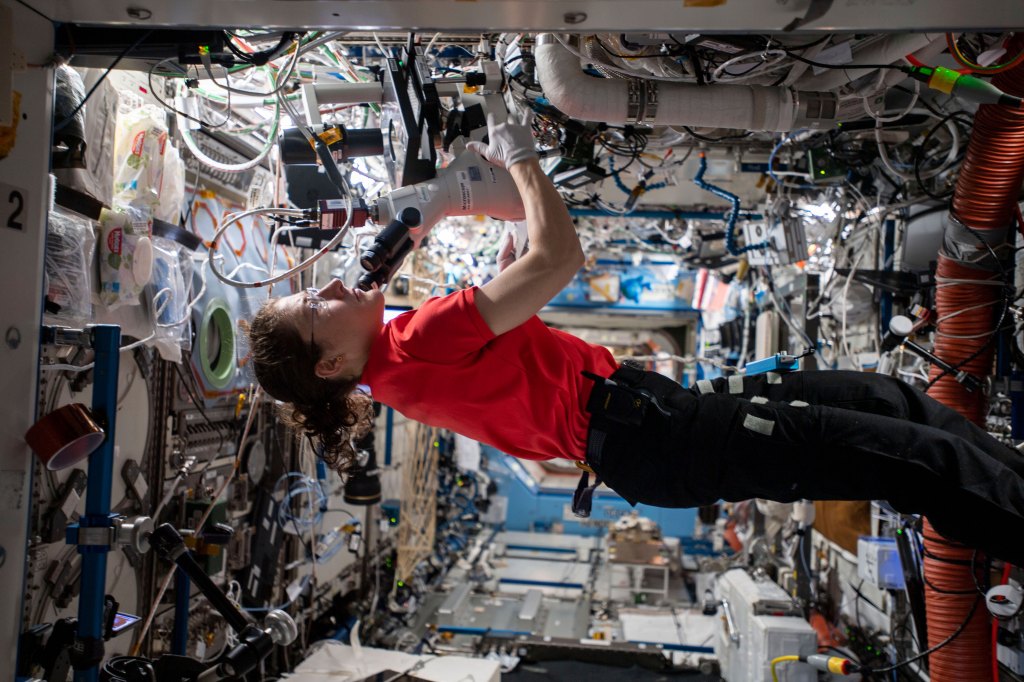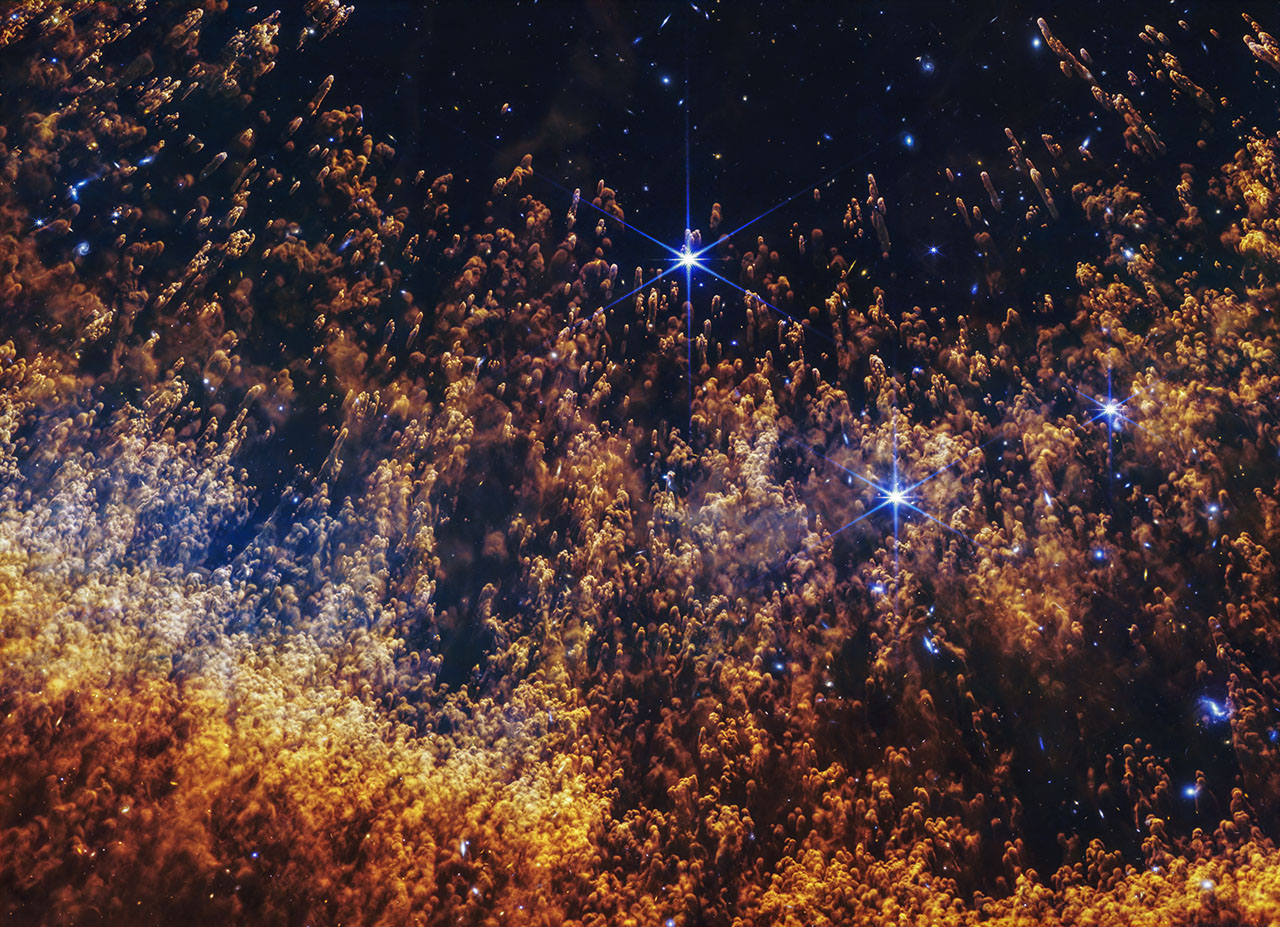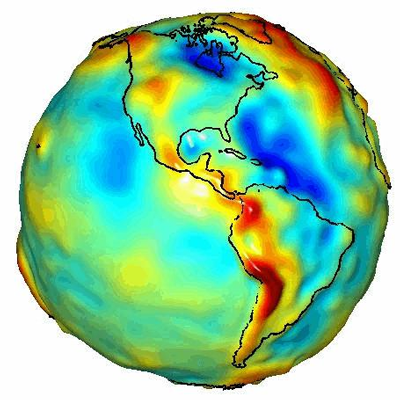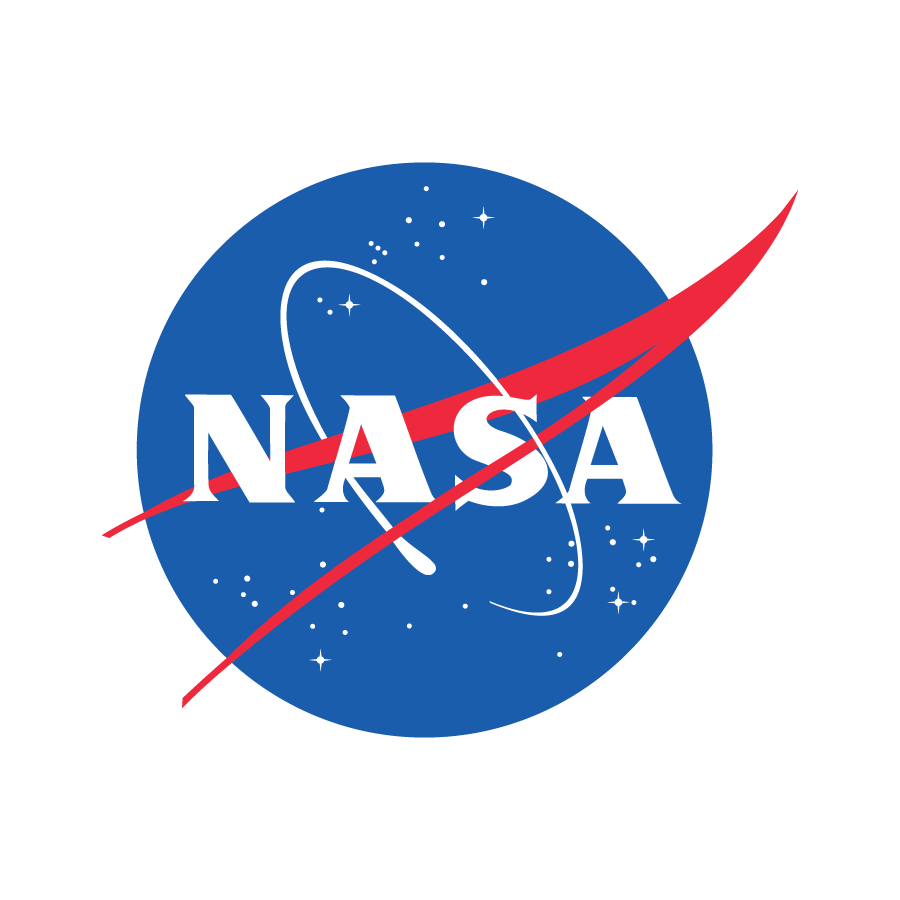WEBB'S LATEST
News, Imagery, Blogs and more.
Latest News
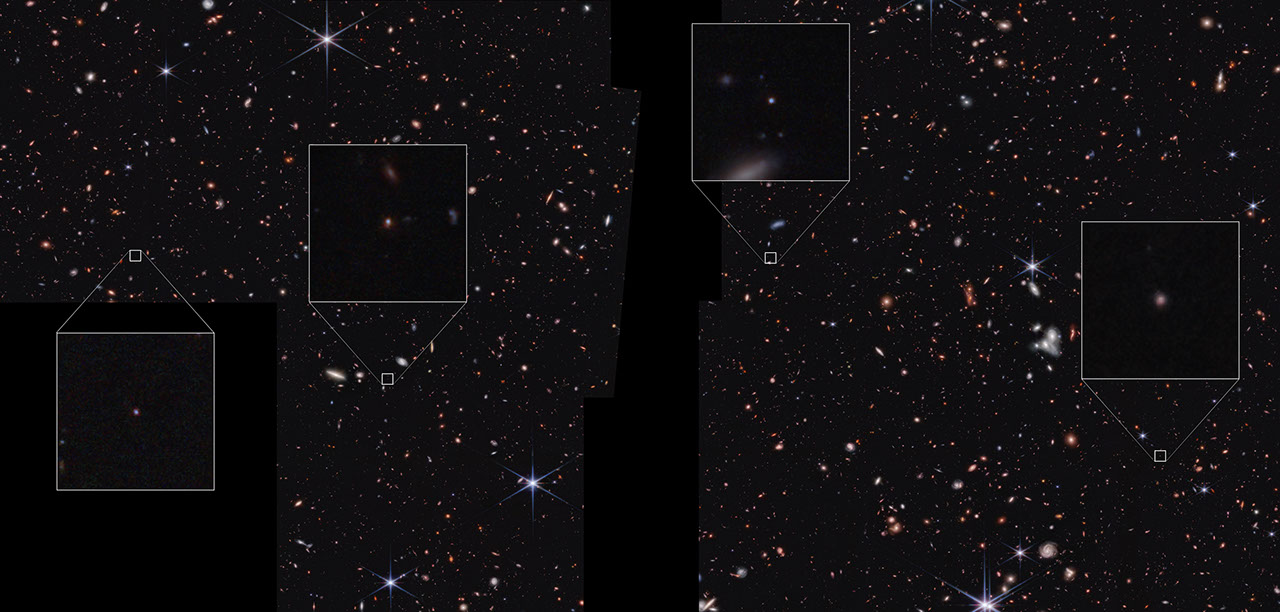
Scientists Identify ‘Astronomy’s Platypus’ with NASA’s Webb Telescope
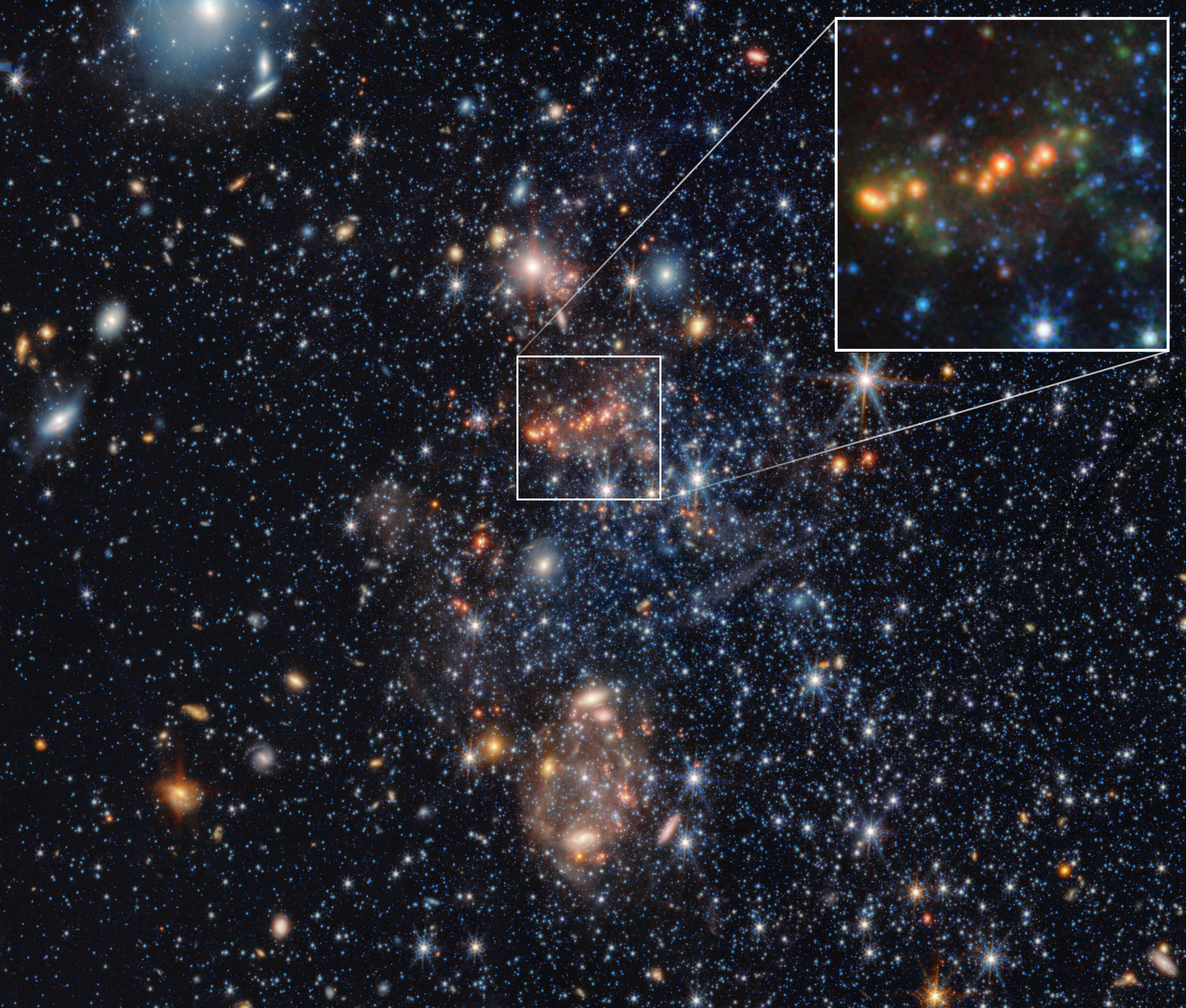
NASA Webb Finds Early-Universe Analog’s Unexpected Talent for Making Dust
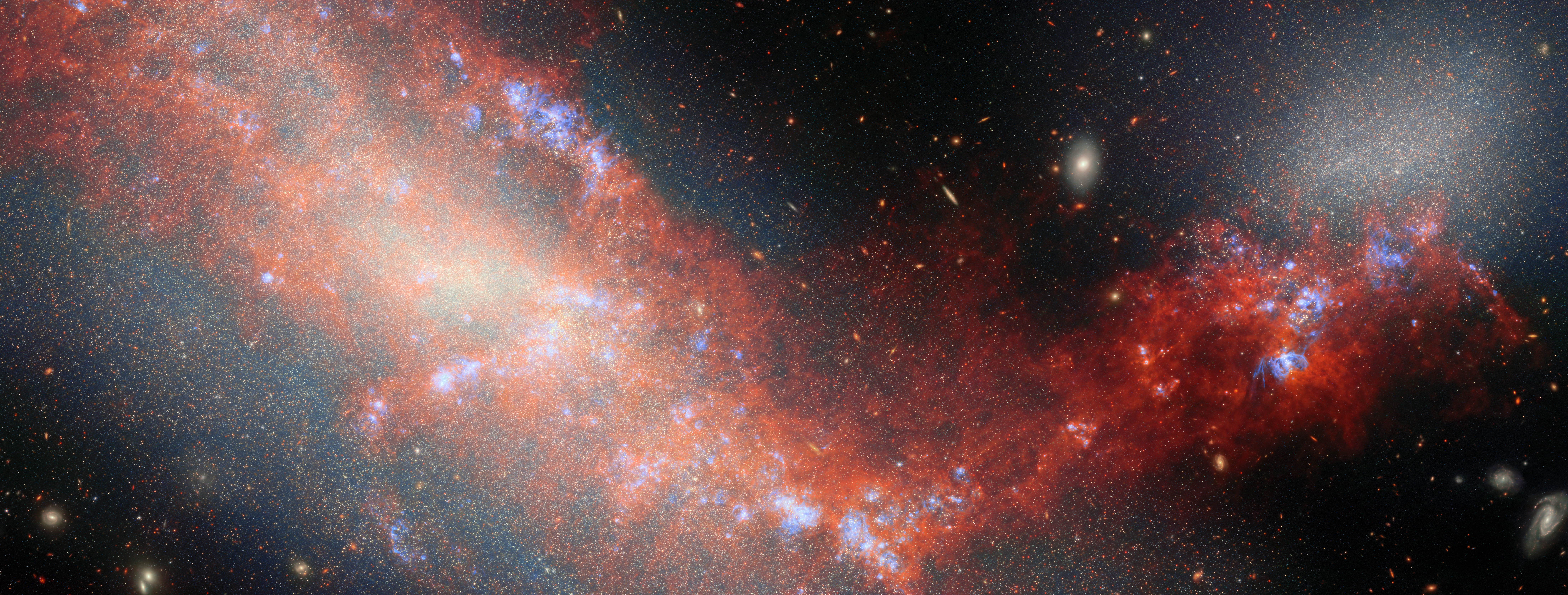
A Dance of Galaxies
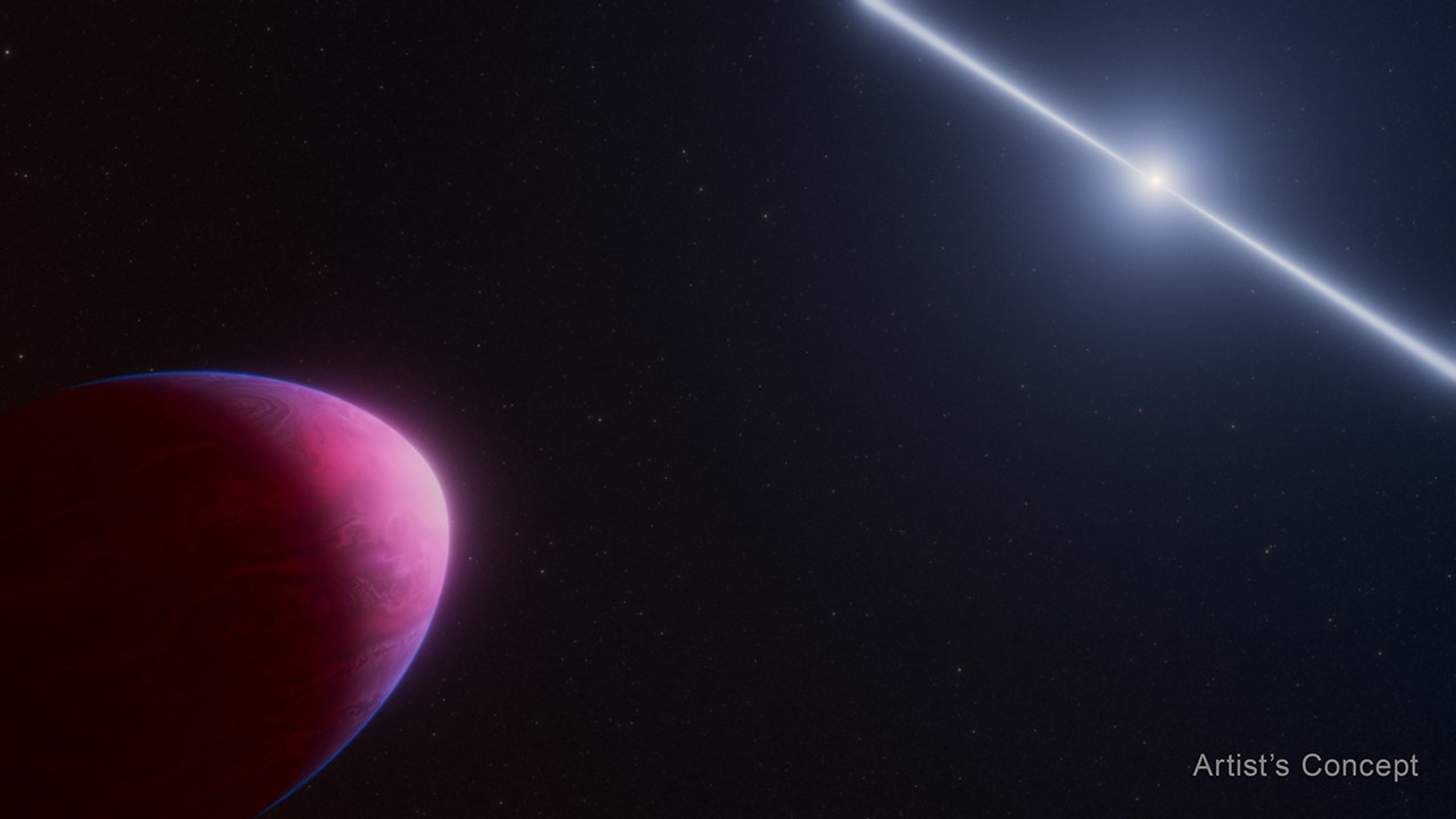
NASA’s Webb Observes Exoplanet Whose Composition Defies Explanation
Search Webb News and Imagery
The feed below is a mix of Webb Science Releases and associated images/videos, Webb Science Blogs, Webb press releases and articles tagged with "James Webb Space Telescope". To filter out everything except the Webb Science Releases (or Science Blogs) - simply select that filter check box. Webb Science Releases, images, videos and Webb's Science Blogs can also be filtered by Webb's four primary science themes.
Filter, Search and Sort Notes: Initial filtered results displayed below show all articles that match ANY of the filters for all dates. Once one or more filter options are checked , only articles that MATCH ANY (logical OR) of the checked filters are displayed within the date range selected. The MATCH ALL (logical AND) filter operator will reduce the matching set to only those articles that match ALL checked filters within the date range. The "Search Latest Content" box searches for the terms entered within the subset of filtered articles. You can also sort the results by date in descending (newest first) or ascending (oldest first).
Filters
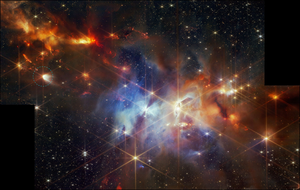
Astronomers have long sought evidence to explain why comets at the outskirts of our own solar system contain crystalline silicates,…

NASA’s James Webb Space Telescope’s 2024 NIRCam image shows protostar EC 53 circled. Researchers using new data from Webb’s MIRI…
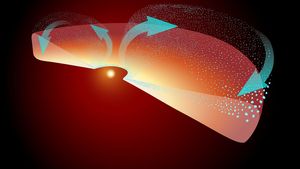
This illustration represents half the disk of gas and dust surrounding the protostar EC 53. Stellar outbursts periodically form crystalline…
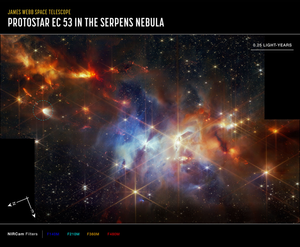
This image of protostar EC 53 in the Serpens Nebula, captured by the James Webb Space Telescope’s Near Infrared Camera…
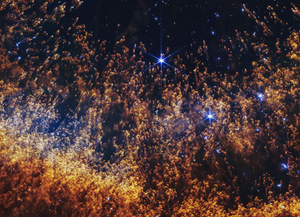
NASA’s James Webb Space Telescope has zoomed into the Helix Nebula to give an up-close view of the possible eventual…

This new image of a portion of the Helix Nebula from NASA’s James Webb Space Telescope highlights comet-like knots, fierce…
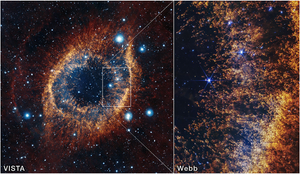
This image of the Helix Nebula from the Visible and Infrared Telescope for Astronomy (left) shows the full view of…
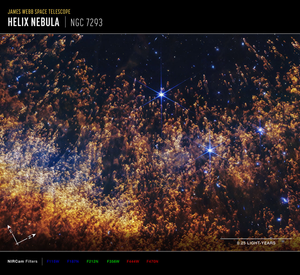
This image of the Helix Nebula, captured by the NIRCam (Near-Infrared Camera) instrument on Webb, includes compass arrows, scale bar,…
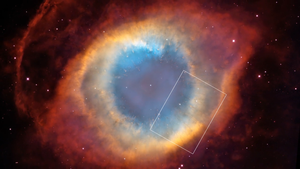
This video compares images of the Helix Nebula from three NASA observatories: Hubble’s image in visible light, Spitzer’s infrared view,…
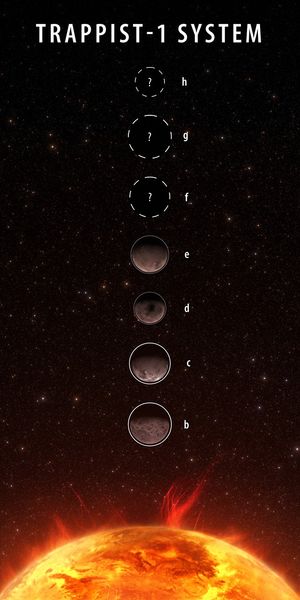
Scientists have found little atmospheric evidence for TRAPPIST-1 b and TRAPPIST-1 c. TRAPPIST-1 d and TRAPPIST-1 data is still under…
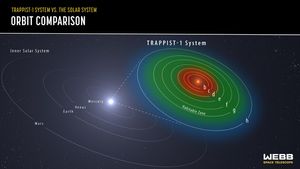
An orbit comparison of the seven TRAPPIST-1 planets (labeled from b to h) around their star to the orbits of…
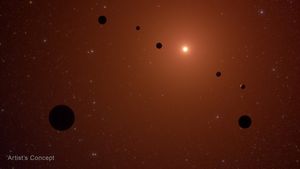
Artist’s concept of the TRAPPIST-1 system, which is known to have seven Earth-sized rocky planets orbiting a red dwarf star.

The Circinus Galaxy, a galaxy about 13 million light-years away, contains an active supermassive black hole that continues to influence…

This artist’s concept depicts the central engine of the Circinus galaxy, visualizing the supermassive black hole fed by a thick,…
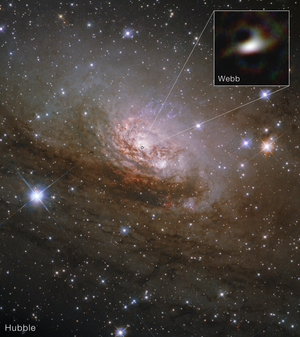
This image from NASA’s Hubble Space Telescope shows the Circinus galaxy. A close-up of its core from NASA’s James Webb…
Webb's Blog
Webb's Blog offers an insider's point of view covering a variety of topics. The feed below supports a deeper dive into Webb's Blog which contains early release science (not yet peer reviewed) as well as Webb Mission Operations and Webb Engineering posts - you can filter on any/all of these post types as well as filter Webb Science Blogs by Webb's four primary science themes.
Filter, Search and Sort Notes: Initial filtered results displayed below show all articles that match ANY of the filters for all dates. Once one or more filter options are checked , only articles that MATCH ANY (logical OR) of the checked filters are displayed within the date range selected. The MATCH ALL (logical AND) filter operator will reduce the matching set to only those articles that match ALL checked filters within the date range. The "Search Latest Content" box searches for the terms entered within the subset of filtered articles. You can also sort the results by date in descending (newest first) or ascending (oldest first).
Filters
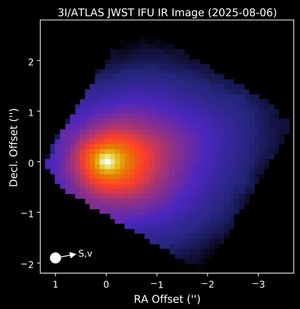
NASA’s James Webb Space Telescope observed interstellar comet 3I/ATLAS Aug. 6, with its Near-Infrared Spectrograph instrument. The research team has…
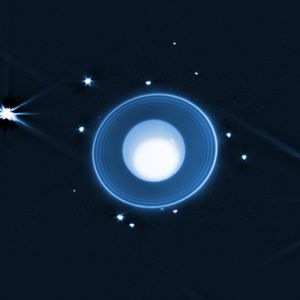
Editor’s Note: This post highlights data from Webb science in progress, which has not yet been through the peer-review process.…
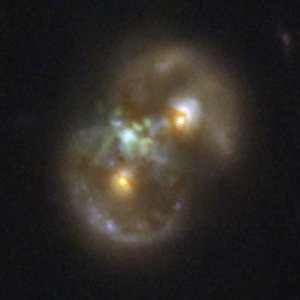
Editor’s Note: This post highlights a combination of peer-reviewed results and data from Webb science in progress, which has not…

While asteroid 2024 YR4 is currently too distant to detect with telescopes from Earth, NASA’s James Webb Space Telescope collected one…
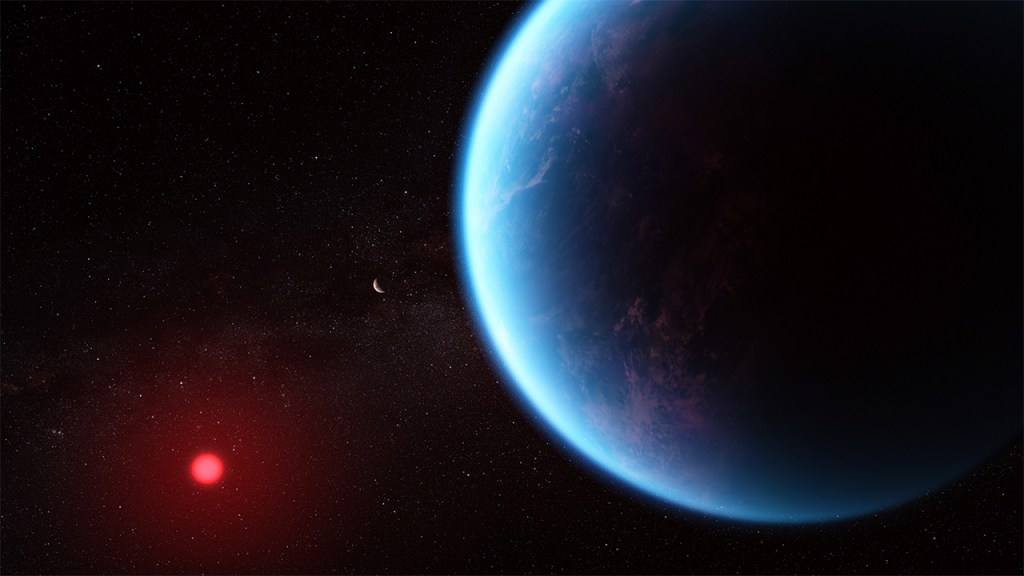
This artist’s concept shows what exoplanet K2-18 b could look like based on science data. K2-18 b, an exoplanet 8.6…
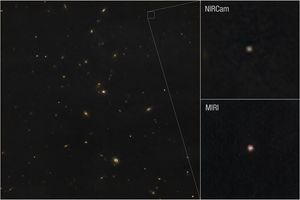
Editor’s Note: This post highlights data from Webb science in progress, which has not yet been through the peer-review process. These…
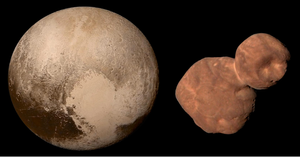
Trans-Neptunian objects (TNOs) are icy bodies ranging in size from Pluto and Eris (dwarf planets with diameters of about 1,500…

NASA’s James Webb Space Telescope is the largest and most powerful telescope ever launched to space. Its mirror is composed…
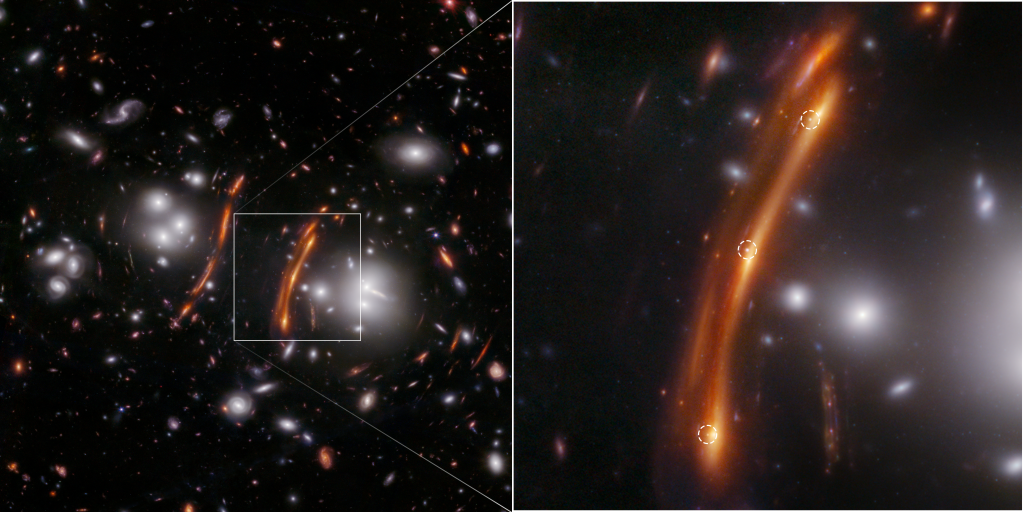
Editor’s Note: This post highlights data from Webb science in progress, which has not yet been through the peer-review process. Measuring…
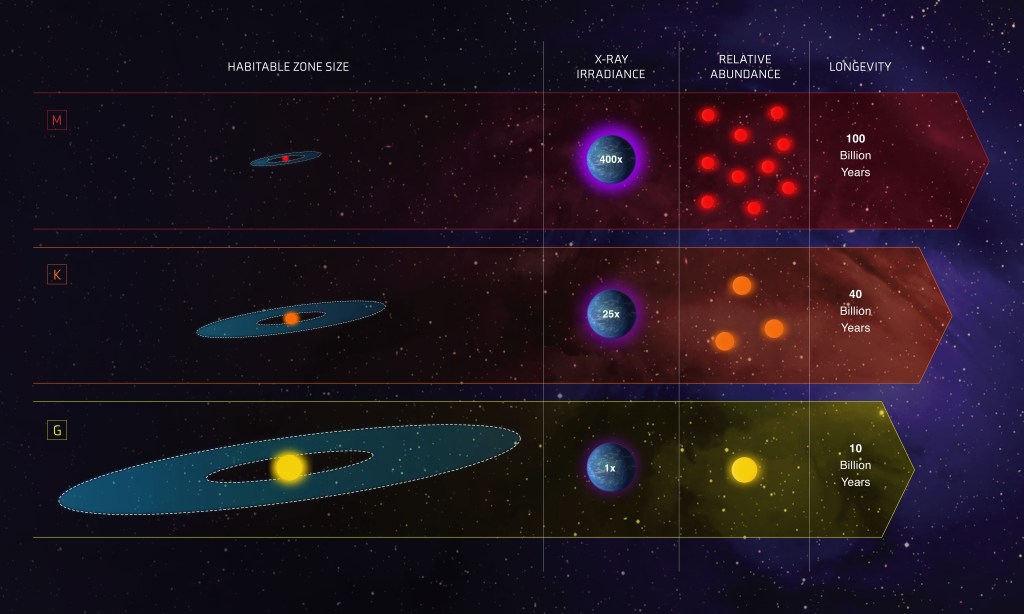
Exoplanets are common in our galaxy, and some even orbit in the so-called habitable zone of their star. NASA’s James…
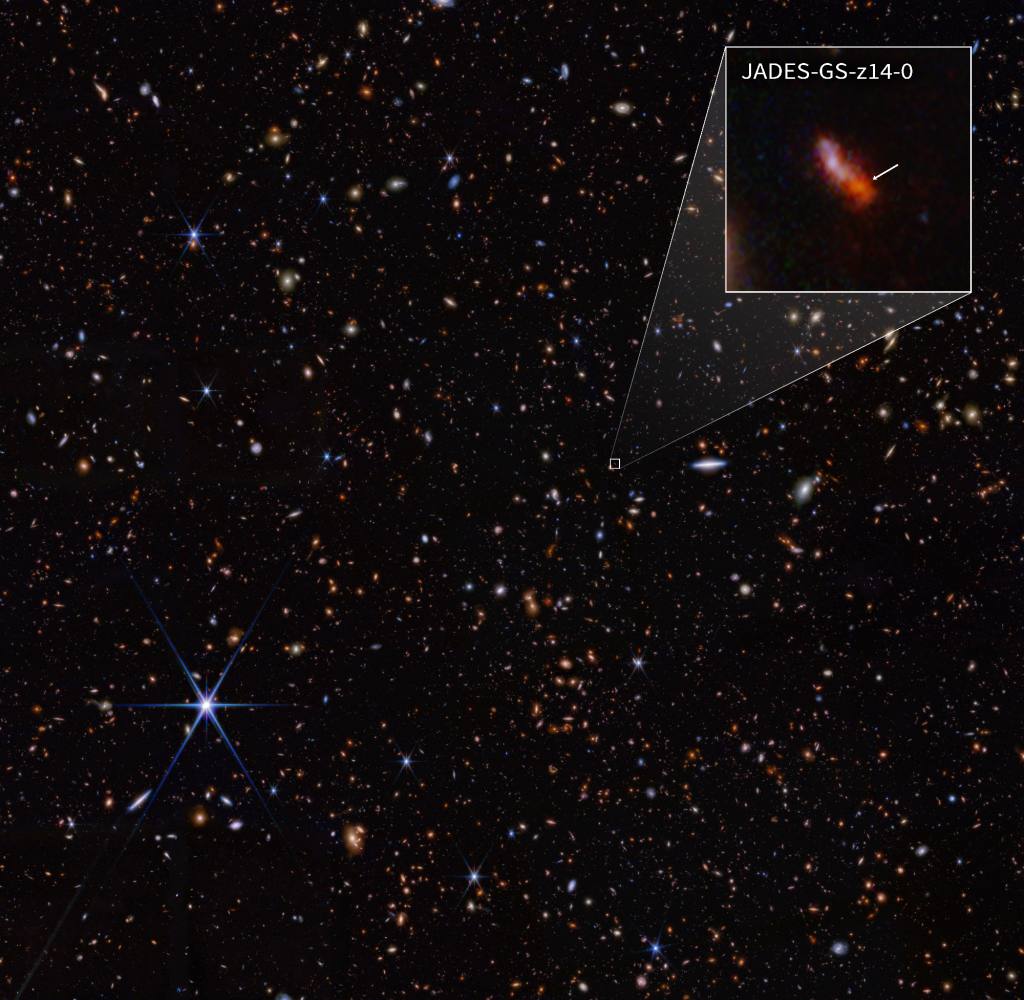
Editor’s Note: This post highlights data from Webb science in progress, which has not yet been through the peer-review process.…
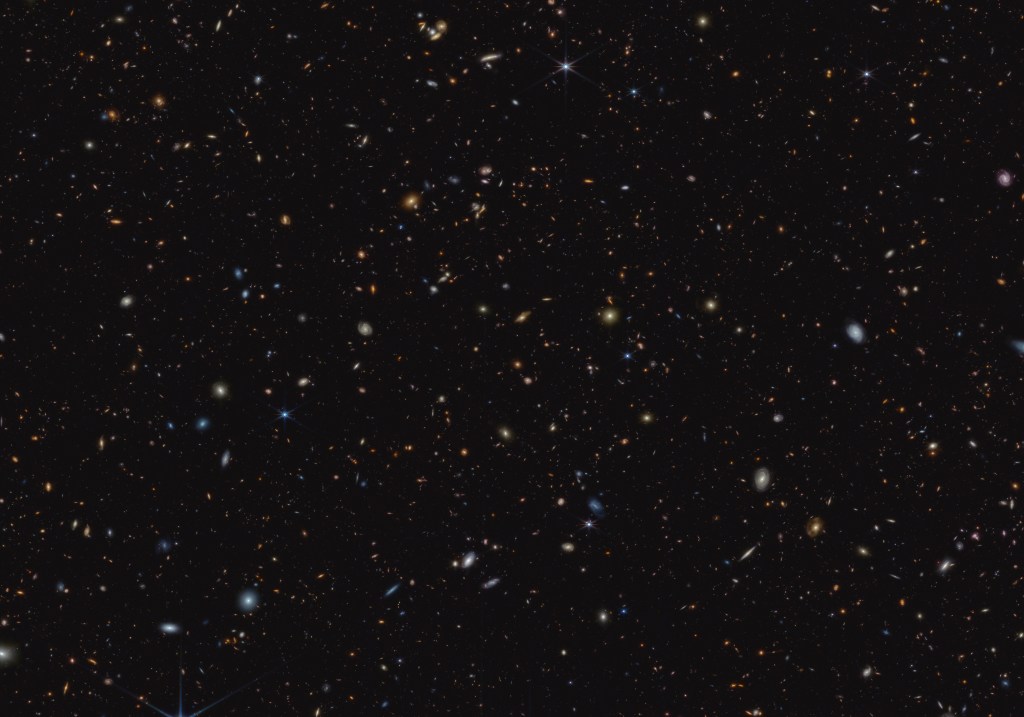
NASA's James Webb Space Telescope is delivering on its promise to explore the farthest reaches of the universe, looking back…

Editor's Note: This post highlights data from Webb science in progress, which has not yet been through the peer-review process.…

One of NASA's James Webb Space Telescope's science goals is to understand how galaxies in the early universe formed and…

NASA's James Webb Space Telescope observed the exoplanet WASP-80 b as it passed in front of and behind its host…
Webb's Social Media
Webb Social Media (offsite) : X | Instagram | Facebook | Youtube | Flickr
What is Webb Observing?
See current, upcoming and recent past observations scientists are making with the Webb Space Telescope. View details about each observation's science focus areas, the instruments used and more.
View the Tool